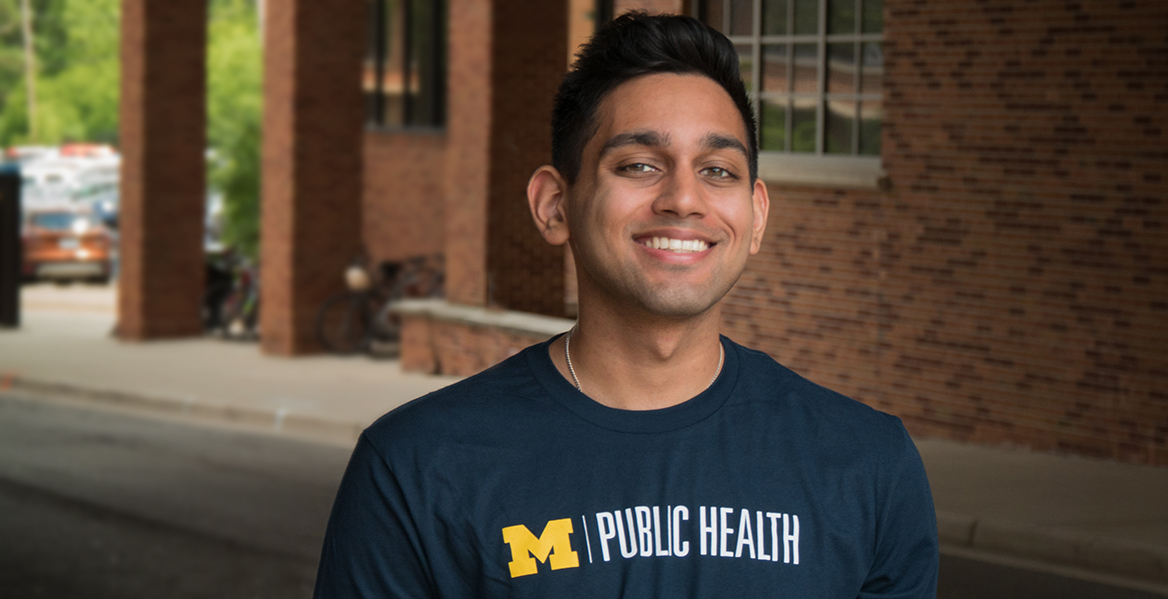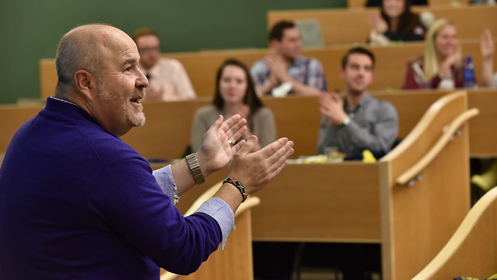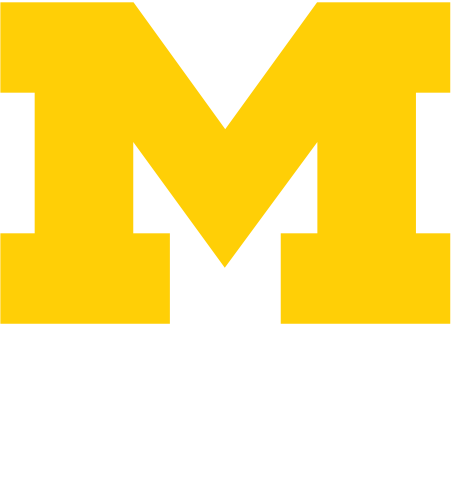School of Public Health welcomes first class of bachelor’s students
 Junior Hussain Ali came to the University of Michigan as a nursing student and then
decided he wanted to pursue a career in dentistry.
Junior Hussain Ali came to the University of Michigan as a nursing student and then
decided he wanted to pursue a career in dentistry.
But after spending his first two years at Michigan working with the homeless population in Ann Arbor and taking an Introduction to Public Health class his sophomore year, Ali decided to join the nearly 100 students who have begun majoring in public health as part of the School of Public Health’s first undergraduate cohort.
“I thought, if I want to go into a health field—regardless of whether I want to go into medicine, dentistry or nursing—majoring in public health would be a good option,” said Ali. “Public health intersects with preventive health, technology and medicine—all of which are important as a medical professional.”
Public health refers to all organized measures—both public and private—that promote health, prevent disease and increase the quality and length of life for the population as a whole. Public health professionals work to create conditions under which people can live a healthy lifestyle and, when treatment is necessary, ensure equitable access to safe and effective health care.
This year, the School of Public Health added two bachelor’s degree programs to its existing lineup of graduate degree and certificate programs. Undergraduate students take a variety of courses to build general public health knowledge and develop a broad, interdisciplinary understanding of how to address existing and emerging public health problems.
Students choose from two degrees—a Bachelor of Science in public health sciences or a Bachelor of Arts in community and global public health. Both degrees require a set of integrated core courses with additional requirements that encourage students to explore a breadth of coursework.
 Many are drawn to public health from a desire to help others, said Gary Harper, director
of the Office of Undergraduate Education at the School of Public Health and professor
of Health Behavior and Health Education and Global Public Health.
Many are drawn to public health from a desire to help others, said Gary Harper, director
of the Office of Undergraduate Education at the School of Public Health and professor
of Health Behavior and Health Education and Global Public Health.
Upon arriving at Michigan, Ali said one of the first things he noticed was the homeless population in Ann Arbor. “I had volunteered in shelters in Detroit throughout high school, but I didn’t think that problem would exist here in Ann Arbor, with all the resources here,” he said. “So I looked into it.”
That research eventually led him to start Michigan Is My Home (MIMH), the only student-run organization at Michigan focused on helping and providing aid to homeless and impoverished populations.
“The problem of homelessness is much broader than you might think,” he said. “I think public health will help me with that—to help me better understand infrastructure, policy, social and structural determinants of health and health policy.”
While some students in the program plan to pursue graduate degrees in public health and related careers after graduation, the goal isn’t for every student to work in public health specifically.
"Education in public health facilitates the ability of undergraduate students to become educated and informed citizens and actively engage in the process of building healthy societies,” Harper said. “Integrating undergraduate public health programs into a liberal education can produce an informed citizenry that is prepared to address new and emerging challenges that will be part of the ever-changing world within which we live.”
Harper wants undergraduate public health students to know what kind of impact they can have in the world. “We hope these students leave Michigan with a solid understanding of what public health is, why it matters and how they can influence it.”


